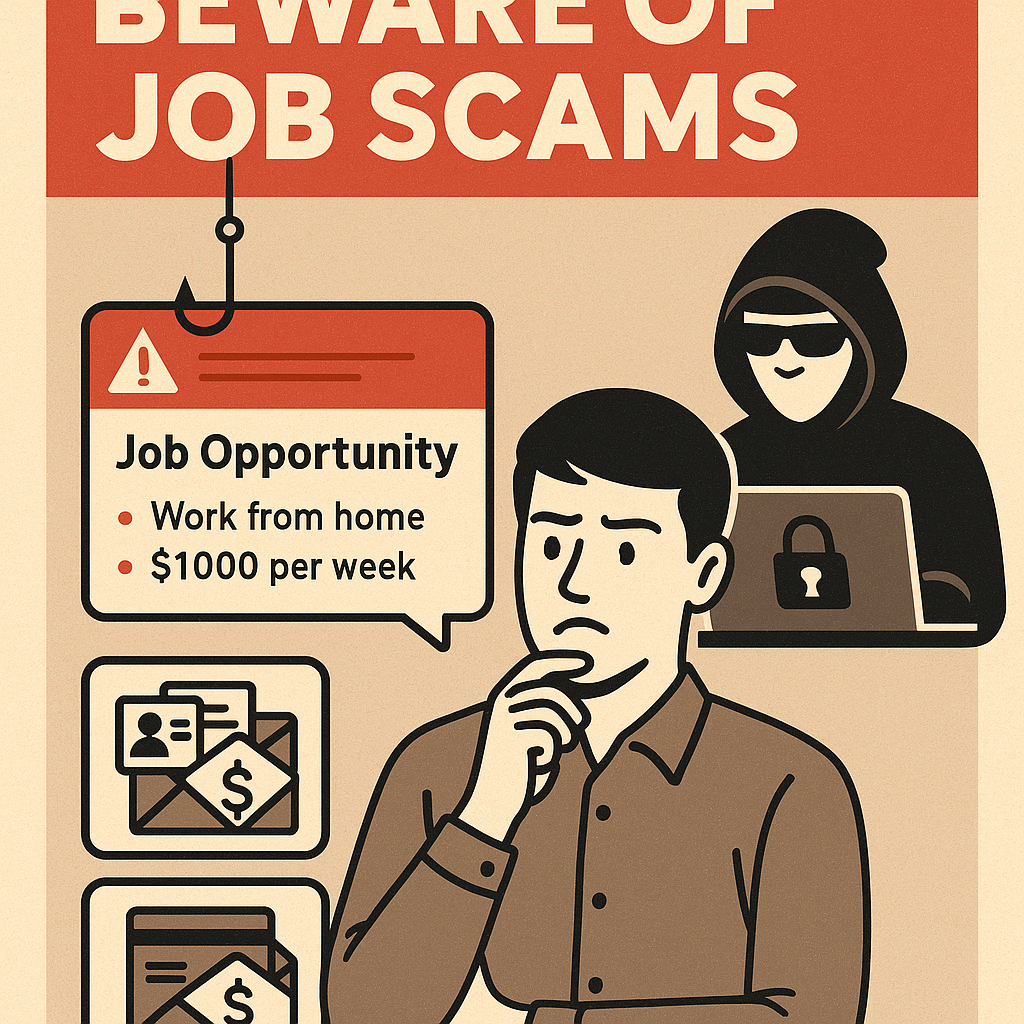Beware of Job Scams
Protect yourself and save time
Tasha Blaze
1/8/20252 min read


Bad actors are aware of the complexities and volatility of the US job market for most job seekers and exploit this knowledge to prey on unsuspecting individuals through phishing schemes and fake job opportunities, capitalizing on their desperation and trust.
🤨 Be suspicious of everyone who reaches out directly with a job opportunity. Here are some risk mitigation tips for unsolicited emails and LinkedIn messages.
Identify predatory messages‼️
1) A legitimate job opportunity, especially from an established company (eg. Meta) will NEVER share specific information on compensation models or incentives in the initial message.
2) If you’re contacted about a job opportunity on WhatsApp, or text, IT IS A SCAM. If the job description or recruiter requests you to do ANYTHING on WhatsApp, it’s a scam.
3) Legitimate opportunities never ask you to create an account, pay a fee, offer gift cards, or request sensitive info for “reimbursements.”
4) NEVER click on a hyperlink. Instead, hover over the link, identify, and then type the domain into www.whois.com. If the domain was created recently or if it contains “wa” it’s likely a phishing attempt. (eg. wajobsapply.com; hr@wa-careerpath.com; info@wa-jobbasepro.com)
5) Avoid downloading malware. NEVER download an unsolicited attachment. This is the most costly mistake! Ask them to copy and paste the document into a message.
Detect LinkedIn bots & scammers ‼️
6) Scrutinize their profile. Scammers/bad actors often have few connections, low/no activity (posting/commenting), recently created profiles (viewable via “Contact Information”), misspellings or grammatical errors, sparse/generic information on their profiles, and/or generic profile pictures.
*Scammers like to target people who have the OpenToWork filter/setting enabled.
Spot malicious emails ‼️
7) Scrutinize the email domain. If it has “wa” at the beginning of the domain (eg. hr@wa-careerspath.com) it’s likely a scammer.
8) Be extra cautious of non-company email addresses like “careerteams.us@gmail.” Search the domain at whois.com to see how new it is and/or search the email address in Google. Victims are likely to report or post about it.
This article exposes the approach and strategy scammers usually take - https://lnkd.in/gyGjgEJG
“Fraud and falsehood only dread
examination. Truth invites it.”
- Samuel Johnson